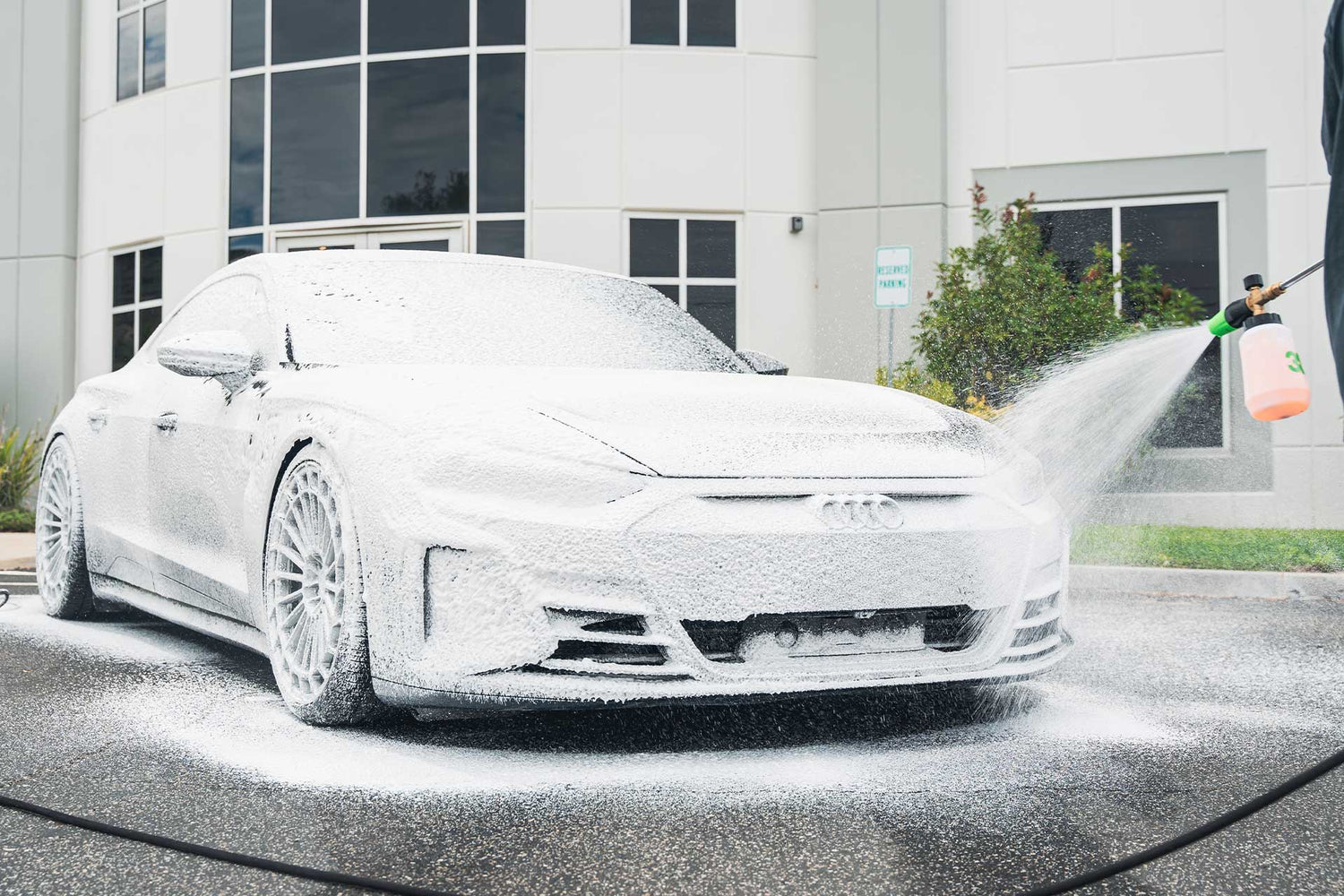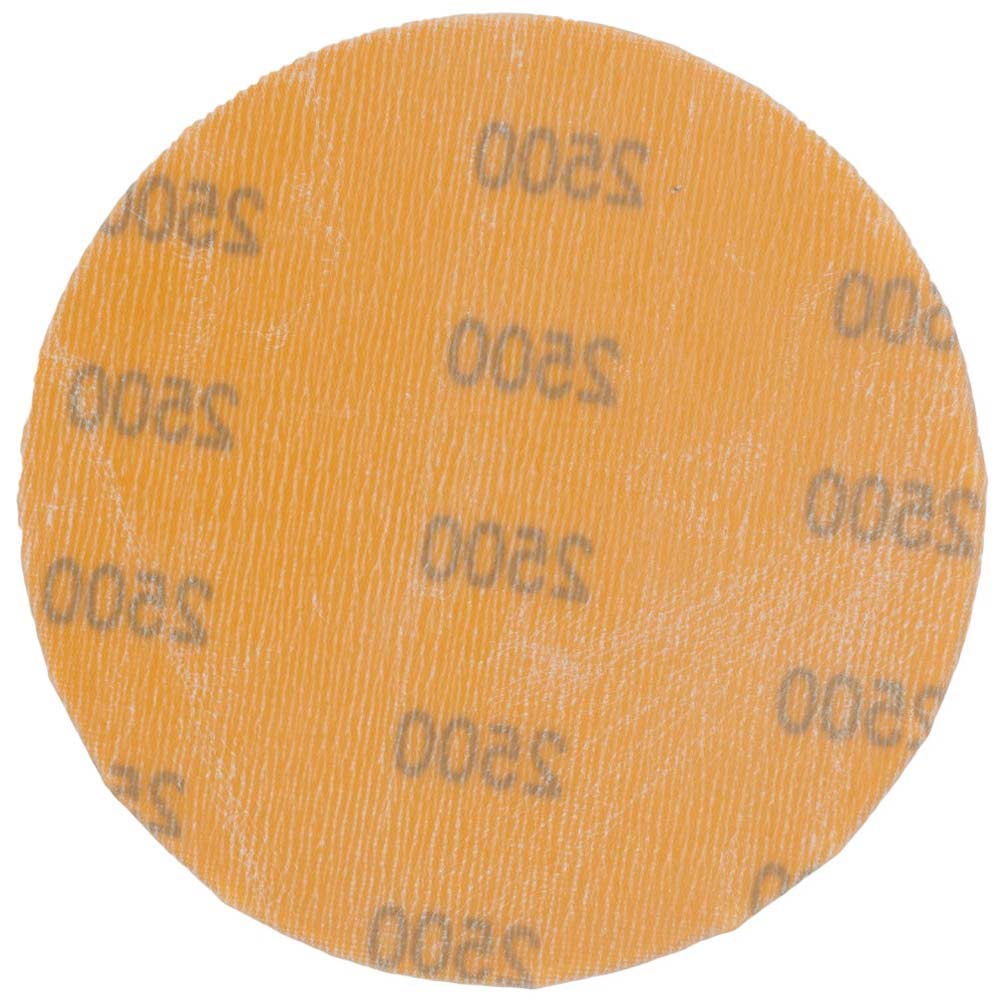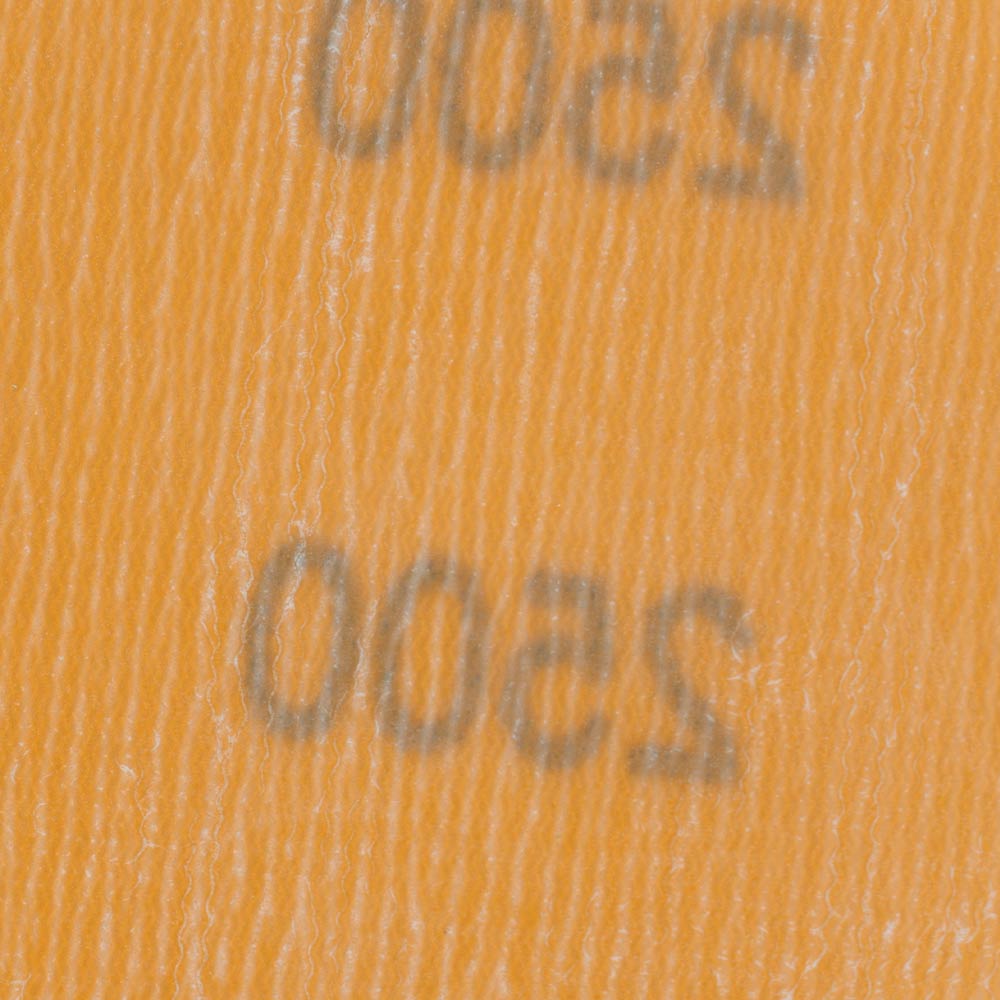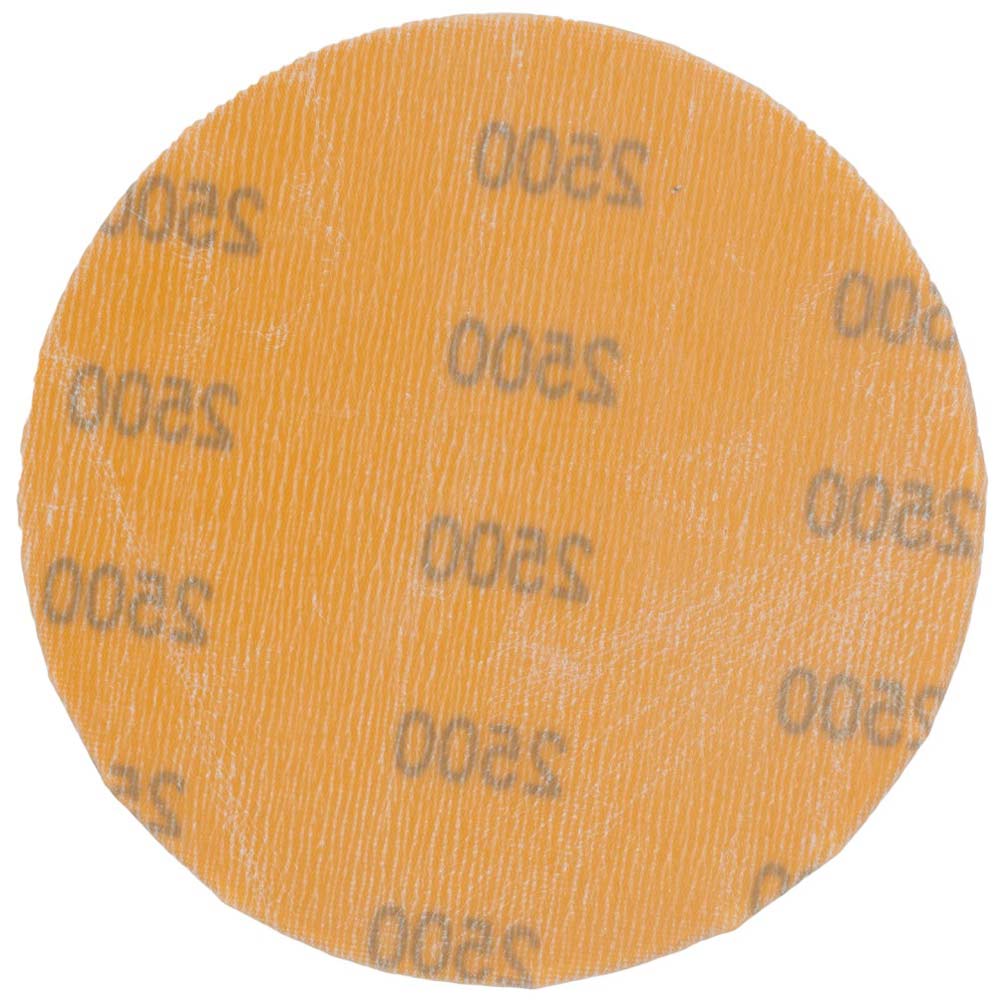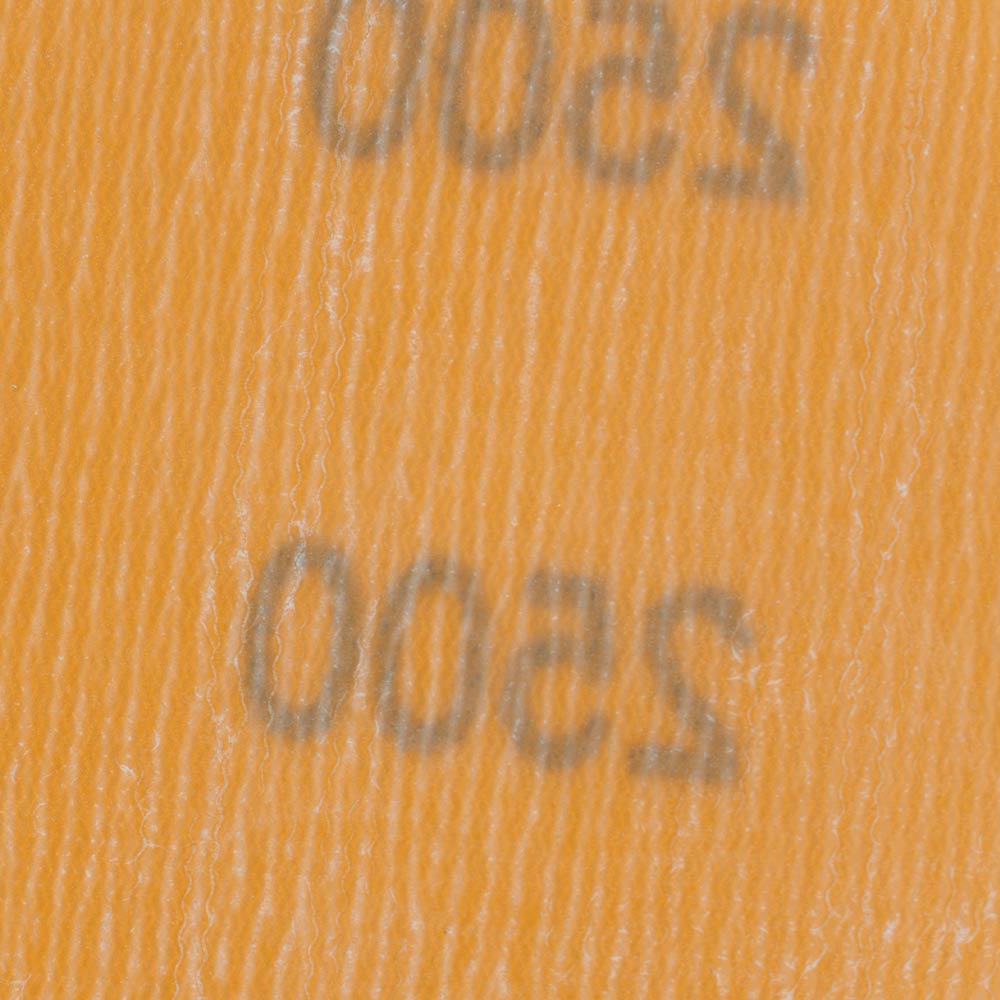Product Details
For light orange peel removal or for refining P1500 sanding marks
3D P2500 Flex Sanding Discs are super high quality, fine cut sanding discs for use after an aggressive sanding step like our 3D P1500. The P2500 discs quickly refine the P1500 sanding marks to P2500, which then are incredibly fast and easy to remove via compounding.
3D P2500 discs can also be used by themselves to level minor orange peel, match factory orange peel or level minor surface texture.
The secret is in the Alpha Ceramic Alumina abrasive technology created by 3DProducts.com. The particle size, shape, hardness, and cut are all engineered and controlled to create a long-lasting sanding disc that cuts fast while leaving a shallow, uniform sanding mark that buffs out fast and easy.
3D P2500 Flex Sanding Discs leave such a uniform, shallow sanding mark pattern it makes the arduous task of sanding faster and easier as well as makes the compounding step faster and easier.
What is it?
A fine grit sanding discs for use on an orbital sander.
What does it do?
Quickly and efficiently levels orange peel and other surface texture to create a flatter, more uniform surface ready for compounding.
When do you use it?
After first sanding with the 3D P1500 sanding discs to refine the P1500 sanding mark pattern to an even more shallow depth or as a stand-alone sanding process when there’s only minor orange peel to remove. P2500 is also excellent for light sanding on fresh paint to match factory orange peel o adjacent panels or for leveling minor surface texture or minor paint imperfections when P2500 is more aggressive than what’s needed.
Why use 3D P2500 Flex Sanding Discs over other options?
Great question as there are other options on the market. There are a number of key features and benefits that make our sanding discs a better choice and a better value. First the abrasive technology is our own, we made or invented it from scratch including converting the original raw materials into modified raw materials. So no one else has access to the same abrasive grain technology. The abrasives are engineered from raw materials to finished product. The key aspect of having this much control is our ability to determine the size, shape, hardness, cut ability and breakdown time.
The abrasives are then attached to the thin film using a process that ensure uniform placement over the entire disc. By controlling the particle size and placement we control the depth of the sanding marks and the pattern of the sanding marks. The results are a sanding mark pattern that is shallow in depth and even over the entire surface. This not only means the sanding marks buff out faster and easier it also means you leave more paint on the surface and keep buffing temperature lower.
Our proprietary anti-clogging technology prevents the “cementing” of paint particles onto the face of the sanding disc and this means more cutting with less risk of pigtails. Of course you must clean the face of the disc often, but any paint particles remove easily instead of impaction onto the disc in a way they are difficult if not impossible to remove. In real world testing on average paint hardness, you can expect to use one disc to sand one body panel. There are exceptions to both extremes, on some paint you may get less than a panel, (really hard paint with excess orange peel), or two body panels for softer paint less orange peel. Because topcoat hardness is always an unknown variable, we don’t make specific claims but let the overall performance of our products do the talking.
